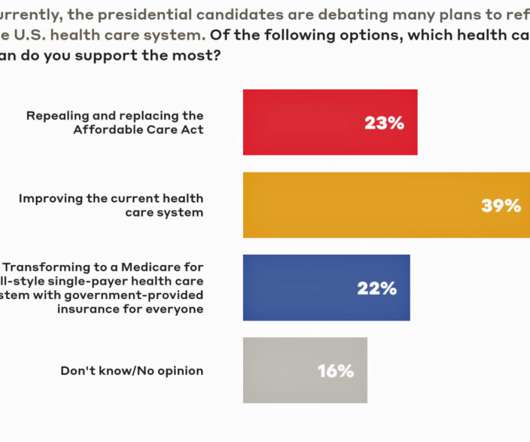Health Care In the COVID-19 Era – PwC Finds Self-Rationing of Care and Meds Especially for Chronic Care
Health Populi
MAY 20, 2020
Payors, both commercial and public sector (Medicare, Medicaid), have relaxed rules and regulations for telehealth across platforms (from purpose-built telemedicine programs to HIPAA-relaxed approvals for using FaceTime, Zoom, and other commercial channels), and have various plans to pay for virtual care visits between clinicians and patients.



















Let's personalize your content